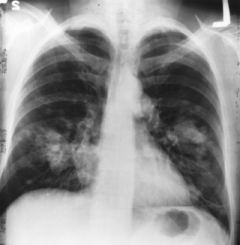An international group of scientists has identified three genetic regions that predispose Asian women who have never smoked to lung cancer. The finding provides further evidence that risk of lung cancer among never-smokers, especially Asian women, may be associated with certain unique inherited genetic characteristics that distinguishes it from lung cancer in smokers.

Lung cancer in never-smokers is the seventh leading cause of cancer deaths worldwide, and the majority of lung cancers diagnosed historically among women in Eastern Asia have been in women who never smoked. The specific genetic variations found in this study had not been associated with lung cancer risk in other populations.
Although environmental factors, such as secondhand smoke (also known as environmental tobacco smoke) or exhaust from indoor cooking are likely account for some cases of lung cancer among Asian women who have never smoked, they explain only a small proportion of the disease. To gain a better understanding of lung cancer in Asian female never-smokers, researchers from the National Cancer Institute (NCI), part of the National Institutes of Health, partnered with researchers from several other countries to create the Female Lung Cancer Consortium in Asia to conduct one of the largest genome-wide association studies (GWAS) in female never-smokers to date. GWAS compares DNA markers across the genome between people with a disease or trait to people without the disease or trait.


